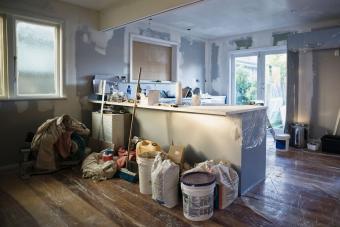
Bamboo countertops are a wonderful, practical way to bring sustainable design into your kitchen. This material is not only incredibly hard and durable, but it is also a renewable resource that looks gorgeous in just about any design scheme.
In today's home design market, eco-conscious is no longer just an alternative lifestyle. It is a part of our everyday lives. Because of this new attitude, bamboo has become a kind of super-product, one that can be used in several applications including cabinets, flooring, furniture, accessories and more.
Why Bamboo Countertops?
While bamboo flooring and cutting boards have been popular for quite some time, it has only recently been translated to a kitchen surface. Some of the merits of bamboo as a countertop material are:
- It is harder than other hardwoods such as maple
- It can be resanded and restained every few years to give it a just-installed look
- It has a beautiful grain that looks gorgeous with tile, stone and other woods
- It is a unique material that will set your kitchen design apart from others
- It is very affordable at around $25-$30 per square foot
About Bamboo
Why do eco-conscious manufacturers and designers love bamboo so much? There are several reasons, but it is mostly because of the rate at which bamboo will grown and replenish itself. Consider the following facts:
- Bamboo is a grass that grows to a height of 60 feet in about three to five years
- Bamboo grows up to two feet per day and has an extensive root system that sends up new shoots and naturally replenishes itself
- Bamboo doesn't require replanting, making it one of the most renewable resources known to man
- Because of its rapid growth rate and self-replenishing, bamboo is a wonderful alternative to clear cutting of our world's forests and timberland, which are slow growth and non-renewable
Color
Bamboo usually comes in two colors: light and dark. The light color is a natural color of bamboo. This hue is pale with a muted golden untertone. Dark bamboo is a honey color, which is achieved by steaming the fibers and caramelizing the natural sugars.
Grain
The way bamboo is cut and manufactured produces a variety of looks. There are three traditional types of grain:
- Vertical--1/4-inch wide, taken from the side of a split pole
- Flat--5/8-inch wide, taken from the face of the pole
- End--Cross section of the pole

Installation and Care for Bamboo Countertops
Preparation for Installation
Preparing and installing bamboo countertops is a long, involved process. Here is a brief look at some of the initial steps you must take if you want to install it yourself.Depending on the company you purchase from, a bamboo kitchen countertop is usually sold in 1.2-2-inch-thick slabs. If you choose to install it yourself you can get it in an unfinished slab form, which will need to be fine sanded and finished with a sealer.
The finishing process is the same as any other wood surface. Tung Oil is one of the best finishing products to seal with, but you can also use a polyurethane or a varnish if you like.
One of the most important things to know is that stain should not be directly applied to raw bamboo because it is difficult to get the color even and balanced. If you want to stain the countertop, first seal the bamboo with a coat of finish or a wood stain conditioner and then apply the stain coat.
There are several other steps involved in installing a bamboo countertop, but the above instructions give you an idea of how involved the process is. If you don't feel comfortable with the many steps it takes to properly seal and prepare your bamboo, leave the installation up to a professional.
Care and Maintenance
Some critics are concerned with the porous quality of bamboo and believe it's unsafe for food preparation. However, if you ensure that it is laminated with a food grade adhesive, and properly sealed, the bamboo will remain impervious to food borne bacteria.
Bamboo, like wood surfaces, is prone to burning, scratching and water damage, so it is important to maintain your countertop on a regular basis. Make sure you don't place hot pans directly on the surface, as it can leave scorch marks. If you do get scratches or marks, the bamboo can be easily resanded and resealed to look like new.
Cleaning your bamboo surface is simple. Just use warm water and a mild soap, or mix an ounce of white vinegar into a quart of warm water and fill spray bottles for daily cleaning. Don't use an ammonia-based cleaning product because they will soften the oil finish.
Bamboo Countertop Resources
If you are in the market for a countertop, check out the following resources:







